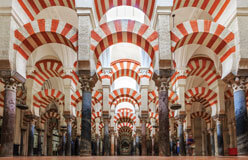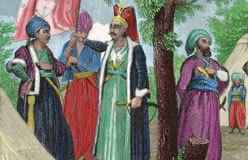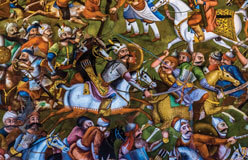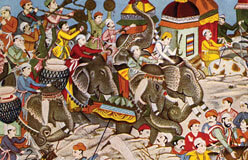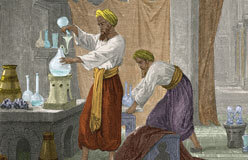Today, the world still feels the influence of the Muslim empires. Do you like to play chess? Our modern chess game developed during the height of the Islamic age.
Europeans designed some musical instruments based on Arabic ones. The rebec is an example. It’s an ancestor of the violin. Many of the brightest stars in the sky have Arabic names.
In Islam, it’s important to learn things and protect knowledge. So scholars were important in the Muslim empires. They made advances in many areas. These include science and math. Also geography. Scholars in Baghdad and Córdoba translated many ancient scientific writings into Arabic. This helped spread that information around the Islamic world. Such translations saved the knowledge of civilizations like Greece. The knowledge would otherwise have been lost to the world.
It’s true that men had more rights than women. But Islamic law gave women more rights than many cultures did at that time. Women could become educated. Some were even scholars. Lubna of Córdoba, for example, ran the royal library in the Umayyad palace at Córdoba. She was also a skilled mathematician and poet.


